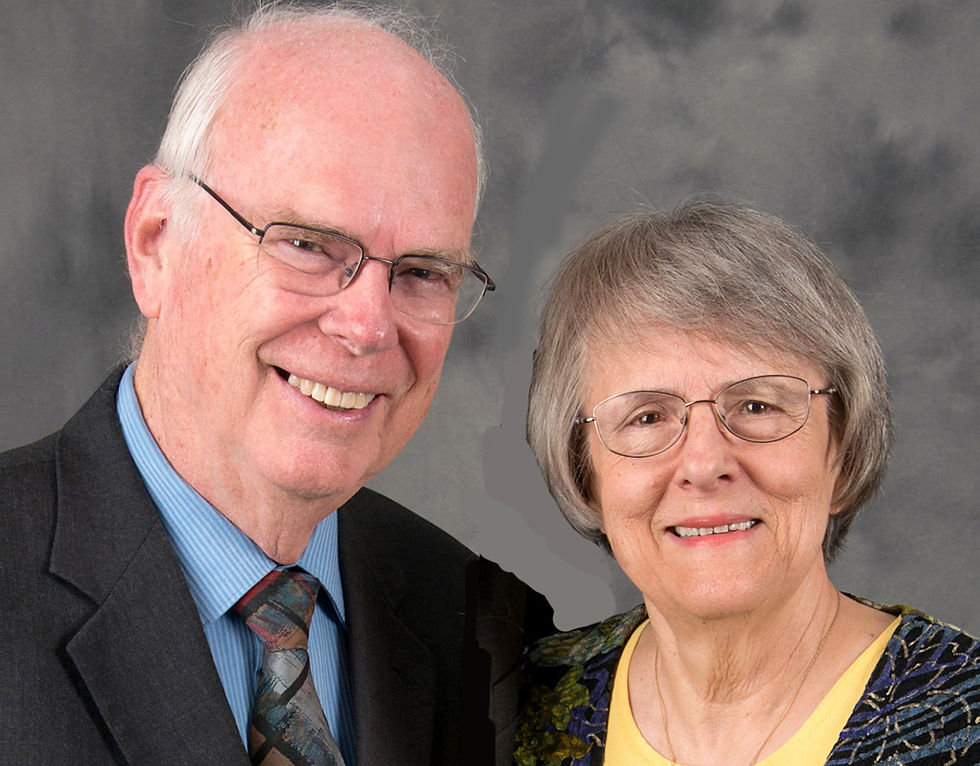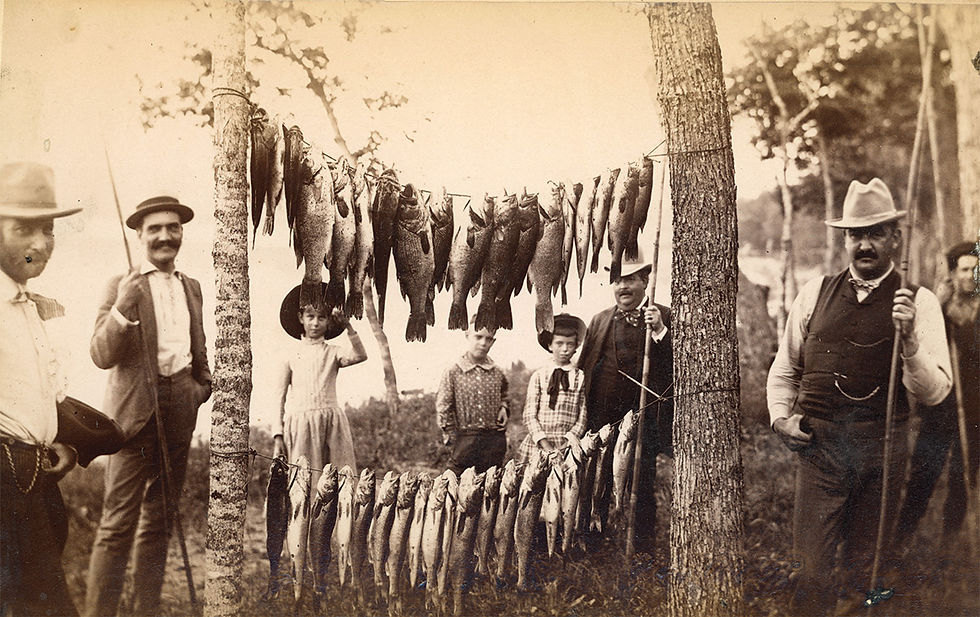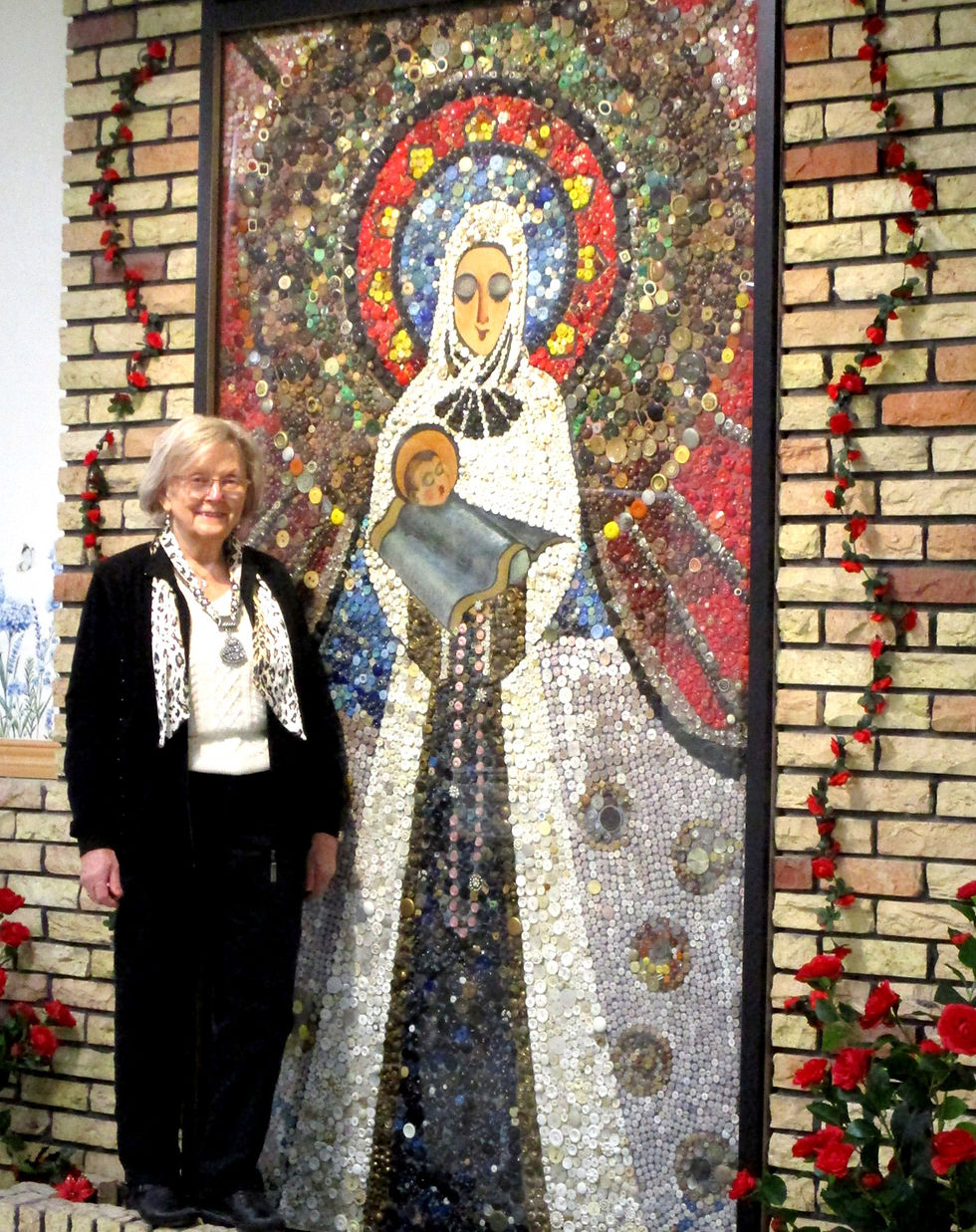Worldly professors
- Sr Perspective

- Mar 1, 2021
- 5 min read
New Ulm couple has enjoyed a life with international flavor at work and at home
By Carlienne A. Frisch

New Ulm residents Tom and Judy Kuster, both retired professors, have led a multi-faceted life. They have taught in such diverse locations as China, South Korea, Croatia and Bulgaria--as well as New Ulm and Mankato. (Tom’s specialty is debate and critical thinking, while Judy’s is speech therapy.) Their home life also has had an international flavor. They raised a family that includes six children adopted from Korea, as well as three American-born children, one of whom also was adopted. (The oldest and youngest of the Kusters’ nine children were born into the family.) They also hosted a family from Vietnam in 1975 and a man immigrating from Cameroon in 2010.
Part of the story begins in Ontario, Canada, where Tom was born. With a Lutheran missionary father as an example, Tom wanted to become a medical missionary, but he focused on theology rather than science and became a Lutheran minister, serving churches in Madison, Wis. and Muskegon, Mich. After he earned a Ph.D. in communication, this unassuming man was addressed as Dr. Kuster--a professor at Dr. Martin Luther College, New Ulm, and later at Bethany Lutheran College (where he met his sister’s roommate, Judy) and Theological Seminary, Mankato.
The Kusters married in Madison, Wis., Judy’s hometown. Their first son, Andrew, was born to them in Madison. His brother, Matthew, was adopted in Muskegon, Mich. After the family’s move to New Ulm, the boys were joined in 1975 by a sister, an orphan adopted from Korea through the David Livingston Foundation of Tulsa, Okla. Judy remembers their daughter’s arrival in Minneapolis thus: “She arrived into our arms at the airport. She stopped crying, dug her fingers into my arm and never let go. Her passport name was Park Yang Soon. We gave her the name Kymarie.” The boys quickly fell in love with their five-month-old sister.
Adoption procedures allowed for only two visas, but there was no limit on how many members of one family could arrive on one visa. Thus, on New Year’s Eve 1976, the number of people in the Kuster family doubled when five Korean siblings arrived. Judy explained, “Both of their birth parents were deceased, and their relatives could not take care of five children ages 2, 4, 5, 7 and 10.”
Tom added, “South Korea was not the prosperous country it is now. Later, Laurie, the oldest, had the opportunity to visit Korea with her husband on one of his business trips and they met with relatives while there. Laurie has distinct memories of feeling disapproval because she was perceived as not being subservient enough to her husband. She had become American.”
When the Kusters were on a Fulbright scholarship to Korea in 2012, they taught at Daelim College in Anyang, near South Korea’s capital, Seoul, and were able to connect with a cousin of their five children. They were guided to some of the family members and had the opportunity to visit the graves of their children’s birth parents, which Tom described as “a very moving experience.” He said, “The Korean names of their children are engraved on their tombstone. We had kept those Korean names as the middle names of our children.”

Shortly before the five Korean siblings arrived, Judy learned she was three months pregnant. The Kusters had no thoughts of dropping the adoption, nor did the Children’s Home Society of St. Paul follow the usual procedure of terminating the adoption. The Kusters had already exchanged correspondence with the children, and finding another family willing to adopt five children might not have been easy. The five siblings arrived a half year before Rebecca was born in June 1977. Judy remembers having quite a busy few years.
One of the lessons Judy taught her children over the next 10 years as a full-time mother was JOY-- “Jesus first, Others next, Yourself last.” She did not teach in a classroom during those busy years, but completed a Master of Science degree in adult counseling at MSU, Mankato and returned to the faculty in 1987.
After their family was grown, Tom and Judy began to travel abroad, with trips usually involving an educational component. In 1999, Judy was a keynote speaker at a speech therapy conference in Vienna, Austria. Her specialty in stuttering and internet resources brought her speaking opportunities in Belgium, Ireland, Germany, Croatia and China. Tom accompanied her to Vienna, and they stopped in Italy for a vacation. That year they also vacationed in Israel and Greece, visiting locations mentioned in the Bible.
Tom took a sabbatical in 2000 to Germany to explore Lutheran history and his ancestral sites. In 2002, he took a Bethany debate team to Romania and then to Macedonia and Serbia. The purpose was not only to provide learning experiences for Bethany students, but also to encourage critical thinking about public issues among students from countries recently liberated from authoritarianism.

The Kusters first experienced China in 2006, as tourists with other Bethany professors, which whetted their appetite for possibly teaching abroad. They applied for Fulbright scholarships. Judy explained, “Fulbright makes it possible to be in another culture, and I had a sabbatical allowed from MSU-M, so I applied as a senior specialist. That is an appointment for people at or near retirement, and both of us were still teaching. The appointment is for six weeks or less, with a stipend and airfare.”
The appointment process required an invitation from a person in the host country, Bulgaria, which Judy was able to obtain from a Bulgarian with whom she’d shared a room at a conference in the United States. The Kusters lived in a hotel in Blagoevgrad while Judy attended two professional conferences and Tom had the opportunity to teach a class in communication at Southwest University—Neofit Rilski. With the help of translators, Judy taught university students who were studying to be speech therapists how to counsel people with communication disorders. She also consulted with faculty to better prepare them and their program for Bulgaria’s entry into the European Union.
In 2009, Tom arranged to teach for six weeks at the United International College in Zhuhai. Judy went along and was invited to teach about communication disorders. The Kusters were invited back the next year. Tom, who had taught critical thinking to the students, taught conflict management this time. Both were interesting challenges in a country that discourages dissent.

“When I was teaching students critical thinking, they were encouraged to debate, but the topics were innocuous,” he said. “My suggested topics were refused. In the United States we often debate government policies, such as ‘the United States should take significant steps to reduce the threat of climate change.’ In China this would be considered threatening to the government by suggesting they are not already doing everything perfectly. Topics allowed for debate included whether or not money brings happiness, whether studying abroad in the United States was better than studying in Europe, or whether free lunches should be provided to students in village schools. Although some students were privately critical of the government, no potential criticism was allowed.”
School officials were most interested in students having the opportunity to practice speaking English. Judy explained “All courses were taught in English, with the focus on liberal arts rather than on science. Students were quite fluent in basic English, as they had been encouraged to speak English in school clubs.” She added that students had difficulty in transposing “r” and “l”, confusing “ankle” and “anchor.” It’s interesting to note that Chinese educators want students to learn American English rather than British English.
Now retired, the Kusters remain busy. Judy continues to update her world-renowned website on stuttering and Tom serves as executive director of the Christ in Media Institute, an educational arm of Bethany Lutheran College.




Comments